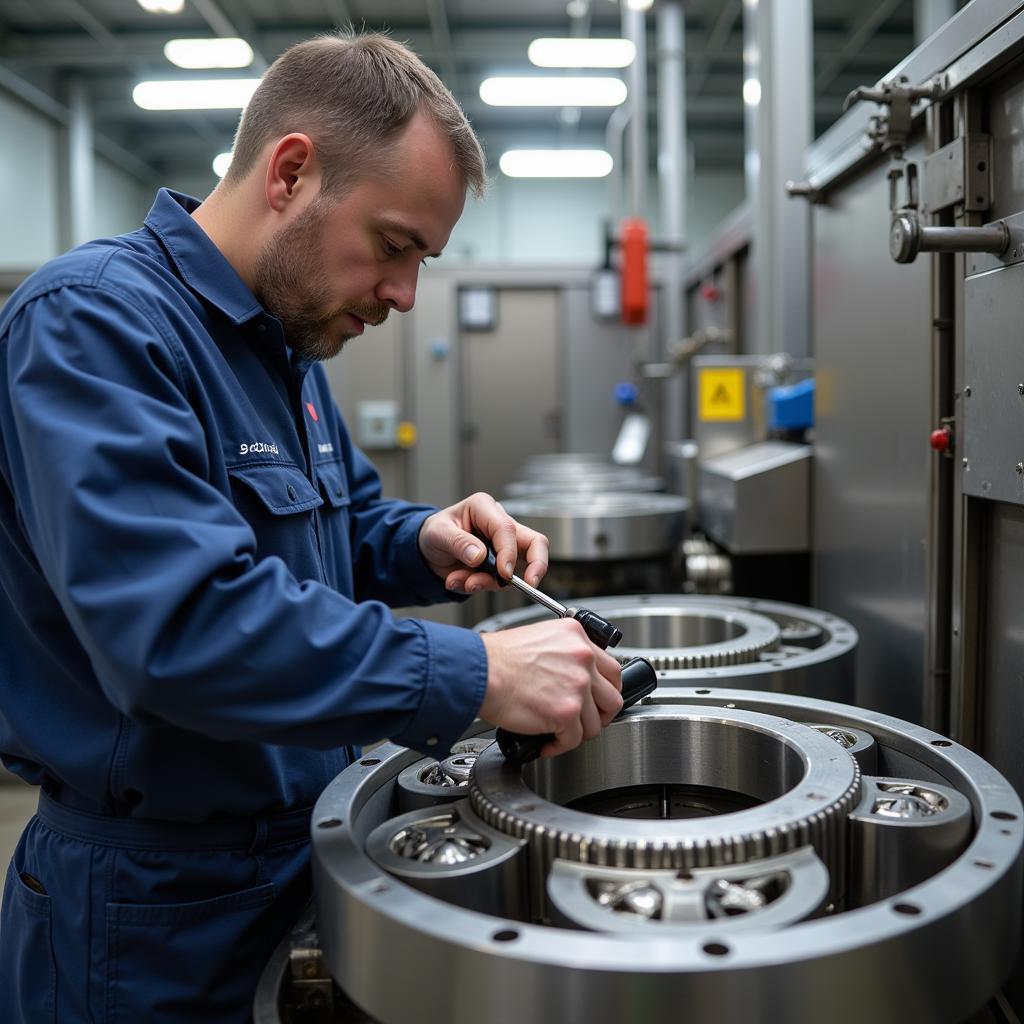Food Grade Bearings are essential components in food processing machinery, playing a crucial role in ensuring smooth operation and maintaining hygiene standards. These specialized bearings are designed to withstand the rigors of the food processing environment while minimizing the risk of contamination. They’re meticulously crafted using materials that meet stringent regulations, preventing the leaching of harmful substances into food products. Choosing the right food grade bearing is vital for both the safety and efficiency of your operations. Let’s delve into the world of food grade bearings and explore their importance in the food industry.
What are Food Grade Bearings?
Food grade bearings are specifically engineered for use in machinery that comes into contact with food products. Unlike standard bearings, they are manufactured using materials compliant with FDA regulations, ensuring they are safe for incidental food contact. These materials, often stainless steel or specialized plastics, are resistant to corrosion, chemicals, and extreme temperatures commonly encountered in food processing. This resistance prevents the bearings from degrading and releasing particles or chemicals into the food, maintaining the integrity and safety of the final product. Food grade bearings also prioritize hygiene through features like sealed designs that prevent the ingress of contaminants.
After carefully selecting high-quality ingredients, you wouldn’t want to compromise your final product with subpar equipment. That’s why using food grade lube in your food processing machinery is just as crucial as selecting the right ingredients.
Why are Food Grade Bearings Important?
The importance of food grade bearings stems from their direct impact on food safety and operational efficiency. Contamination is a major concern in food processing, and using inappropriate bearings can introduce foreign particles, lubricants, or rust into the food stream. Food grade bearings mitigate this risk. They’re constructed from materials that won’t corrode or break down, even under harsh conditions, preventing contamination and protecting consumer health. Moreover, these specialized bearings contribute to smoother operations. Their robust construction and resistance to wear and tear ensure prolonged machinery lifespan, reducing downtime and maintenance costs.
Key Features of Food Grade Bearings
Several key features distinguish food grade bearings from standard industrial bearings:
- Material Selection: Food grade bearings utilize materials like stainless steel, or FDA-compliant plastics, such as certain types of delrin. These materials are resistant to corrosion and chemicals, ensuring they won’t compromise food safety. Is delrin food safe? You can learn more on our website.
- Sealed Designs: Many food grade bearings incorporate seals to prevent the entry of contaminants like dust, water, and microorganisms, further enhancing hygiene.
- Lubrication: They are often lubricated with food grade machine oil to ensure smooth operation while maintaining food safety standards.
- Cleanability: Food grade bearings are designed for easy cleaning and sanitation, contributing to overall hygiene in the food processing environment.
Choosing the Right Food Grade Bearing
Selecting the appropriate food grade bearing depends on the specific application and the operating environment. Factors to consider include:
- Temperature Range: The bearing must be able to withstand the temperature fluctuations within the processing environment.
- Load Capacity: The bearing should be able to handle the weight and forces it will be subjected to during operation.
- Speed Requirements: The bearing’s speed rating must match the operational speed of the machinery.
- Environment: Consider factors like exposure to moisture, chemicals, and cleaning agents when choosing the material and sealing type.
“When choosing food grade bearings,” advises John Miller, Senior Food Safety Engineer at FoodSafe Solutions, “consider the specific requirements of your application. A one-size-fits-all approach can compromise both efficiency and safety.”
Maintaining Food Grade Bearings
Proper maintenance is essential for maximizing the lifespan and performance of food grade bearings. Regular cleaning and inspection are crucial to prevent the buildup of debris and identify potential issues early on. Lubrication with CRC food grade penetrating oil is also important to ensure smooth operation and reduce wear. Following the manufacturer’s recommended maintenance schedule is key to optimizing bearing performance and preventing costly downtime.
“Regular maintenance is an investment, not an expense,” states Maria Sanchez, Lead Mechanical Engineer at Precision Food Machinery. “Properly maintaining your food grade bearings ensures the longevity of your equipment and protects the quality of your product.”
 Maintenance of Food Grade Bearings in a Food Processing Plant
Maintenance of Food Grade Bearings in a Food Processing Plant
Conclusion
Food grade bearings are indispensable for maintaining hygiene and ensuring efficient operations in the food processing industry. Their specialized design and construction minimize the risk of contamination, contributing to food safety and preserving product quality. By choosing the right food grade bearing and adhering to proper maintenance practices, food processing facilities can optimize their operations, reduce downtime, and ultimately protect consumer health. Investing in high-quality food grade bearings is a commitment to both efficiency and the safety of your final product.
FAQ
- What materials are food grade bearings typically made of?
- How do food grade bearings differ from standard bearings?
- Why is lubrication important for food grade bearings?
- How often should food grade bearings be cleaned and inspected?
- What are the key factors to consider when selecting a food grade bearing?
- What are the benefits of using food grade bearings in food processing?
- How can I ensure the longevity of my food grade bearings?
For further assistance, please contact us at Phone Number: 02437655121, Email: minacones@gmail.com or visit our address: 3PGH+8R9, ĐT70A, thôn Trung, Bắc Từ Liêm, Hà Nội, Việt Nam. We have a 24/7 customer service team.